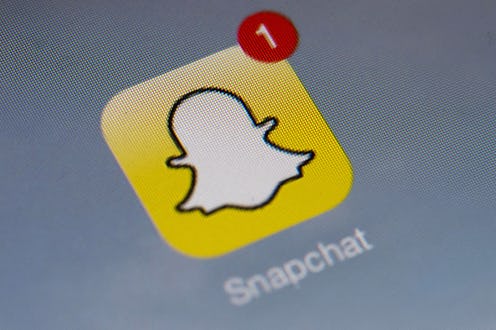Life
There's A Problem With This Snapchat Lens
There are a lot of great ways to celebrate April 20, especially if you live in one of the states which has legalized recreational marijuana. Snapchat's Bob Marley lens on 4/20, however, has rubbed a lot of people the wrong way, with many considering it to be "digital blackface." In response to the backlash, a spokesperson for Snapchat said in a statement provided to Bustle, "The lens we launched today was created in parternship with the Bob Marley Estate, and gives people a new way to share their appreciation for Bob Marley and his music. Millions of Snapchatters have enjoyed Bob Marley's music, and we respect his life and achievements."
The reason for the backlash stems from the long and stomach-churning history of blackface in the United States — and somehow despite this history, it often continues to rear its hateful head in the 21st century. In October of 2015, for example, several students wore blackface to attend a "Kanye Western" party held at a UCLA fraternity. This is, it should go without saying, horribly depressing, so it's easy to see how something like the Snapchat Bob Marley filter could cause an awful lot of hurt. It's honestly somewhat baffling that the lens managed to get approval from a major social media company without anyone realizing that there might be a problem — especially since Snapchat has stated in the past that they make an effort to hire a diverse workforce.
The Bob Marley lens superimposes a red, yellow, and green hat, dreadlocks, and an unambiguously black face over its users, which is problematic on a number of levels. For one thing, dreadlocks are themselves a uniquely black hairstyle; furthermore, in the case of Rastafarians like Bob Marley, they're an important part of the religion.
Also, the very premise — linking Marley to marijuana holiday 4/20 — is troublesome, though Snapchat are hardly the only ones guilty of this. Bob Marley, a Jamaican who belonged to a religious practice that believes marijuana is a sacrament, really shouldn't be commodified and treated like some sort of patron saint of American stoners.
And also: Blackface is unbelievably messed up, even when it's unintentional. In fact, it's messed up in this case because it's unintentional — it's a case of pure thoughtlessness that contributes to a culture of casual racism.
Here's a small selection of the responses to the filter on social media:
While a spokesperson for Snapchat stated that the lens was "created in parternship with the Bob Marley Estate" and meant to honor the musician, it doesn't fully address the issue of how anyone failed to see that such a lens might be problematic. Personally, I can think of lots of things that might honor Bob Marley's legacy in a less fraught manner — including an image of Marley himself elsewhere in the frame, for instance, or incorporating some of his lyrics.
So I guess for now we are just left shaking our heads and wondering how this happened — and hoping it doesn't happen any more.
To honor Bob Marley's legacy without any racially insensitive filters, you can learn more about him — and everything he did besides smoking weed — here.
